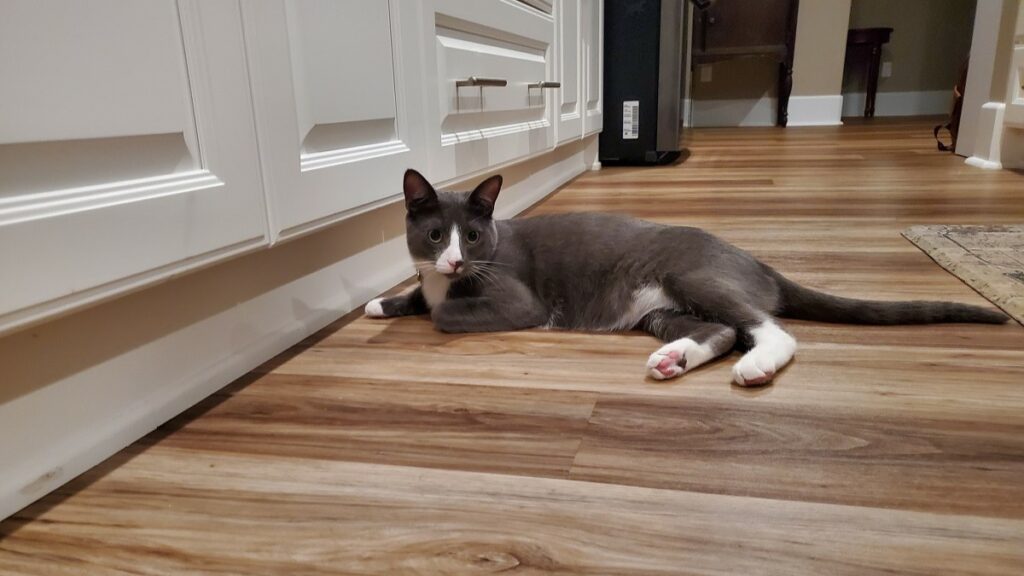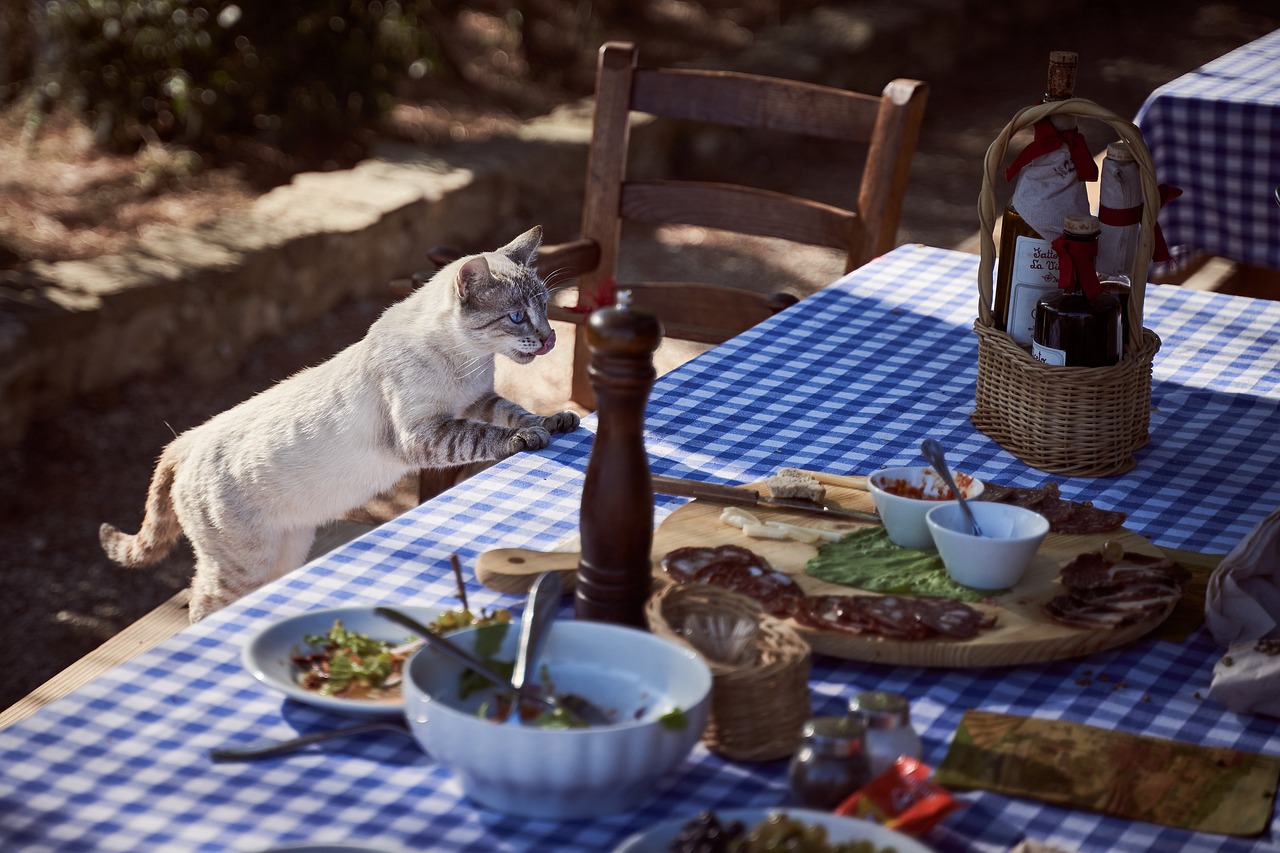You are sitting at the table enjoying a snack when you feel a pair of tiny eyes staring at you. Then come the soft meows, the little paw taps, and maybe even a bold leap onto your lap. Kittens have a way of making you feel like the world’s most selfish person for not sharing your food.
But not all human foods are safe for kittens, even if they act like a bite of your sandwich is all they have ever wanted. Feeding your kitten the wrong food can cause serious health issues, but that does not mean you have to keep them completely away from everything in your fridge.
Let’s break down which people foods are safe in moderation, which are absolutely off-limits, and how to make smart, healthy choices if you decide to treat your kitten to something from your plate.
Kittens Have Delicate Digestive Systems
First things first: kittens are not just tiny cats. They are growing, developing, and still figuring out how to function in the world. Their digestive systems are more sensitive than adult cats, which means they are more likely to get sick from unfamiliar or rich foods.
The best food for kittens is always high-quality kitten-specific commercial food. It is designed to provide the protein, fat, vitamins, and minerals they need to support growth, brain development, and energy. But if you want to offer the occasional treat from the human menu, it has to be something gentle, simple, and safe.
Always introduce new foods slowly and in tiny amounts to avoid upset stomachs. Even safe foods can cause issues if given too often or in large quantities.
Safe Human Foods You Can Offer in Small Amounts
Here are some human foods that are safe for kittens when served plain and in moderation. These can be offered as occasional treats once your kitten is at least 8 weeks old and eating solid food comfortably.
- Cooked Chicken or Turkey – Lean, skinless, cooked poultry is a fantastic protein source. It should be plain, with no salt, garlic, onions, or sauces.
- Cooked Eggs – Scrambled or hard-boiled eggs can be a great protein boost. Make sure they are fully cooked, and skip the butter and seasoning.
- Plain Cooked Fish – Salmon or whitefish can be offered in small amounts, fully cooked and deboned. Avoid canned fish packed in oil or with additives.
- Plain Cooked Rice or Oatmeal – These are safe if your kitten has an upset stomach and needs something easy to digest. Offer in tiny portions and make sure it is completely plain.
- Steamed Carrots or Green Beans – If your kitten is curious about veggies, these two are safe when cooked soft and cut into small pieces. Not all kittens like them, but they are a harmless experiment.
- Canned Pumpkin – A tiny spoonful of pure, unsweetened pumpkin (not pie filling) can help with digestion and adds a bit of fiber. This is especially helpful for kittens who are a little irregular.
Human Foods That Seem Harmless but Are Not
Some foods might seem safe on the surface but can cause health problems for kittens. Their systems cannot handle the same ingredients that humans can, and what is healthy for us can be a poor choice for them.
- Milk and Dairy – Kittens may nurse from their mother, but that does not mean cow’s milk is okay. Most cats are lactose intolerant, and dairy can lead to diarrhea and stomach upset.
- Raw Meat or Fish – While it may feel natural, raw food poses a risk of bacteria and parasites. Unless you are working with a vet on a carefully balanced raw diet, stick to cooked meat only.
- Processed Meats – Ham, bacon, sausages, and deli meats are loaded with salt, preservatives, and fat. These are too heavy for kittens and can cause long-term health issues.
- Bread and Pasta – Not toxic, but not helpful either. These are filler foods that offer little to no nutritional value for a growing kitten.
- Butter, Oil, and Fatty Scraps – Your kitten might try to steal your buttered toast, but resist the urge to share. Fats and oils can upset their stomach and add empty calories.
Foods That Are Dangerous or Toxic
Some foods are not just bad choices. They are downright dangerous. These should never be given to kittens under any circumstances.
- Chocolate
- Onions and garlic (including powders)
- Grapes and raisins
- Alcohol and caffeine
- Xylitol (a sugar substitute)
- Raw dough with yeast
- Bones (especially cooked ones)
If your kitten eats any of these foods, contact your vet immediately. Even small amounts can cause serious reactions in a young cat. (See a more detailed list here.)
How to Safely Share Human Food With Your Kitten
If you decide to share a snack with your kitten, follow these simple tips to keep it safe and enjoyable.
- Offer small portions the size of your pinky fingernail
- Always cook the food thoroughly
- Skip all seasoning, butter, oils, and sauces
- Watch closely for any signs of stomach upset
- Make treats an occasional thing, not part of their regular diet
- Always provide fresh water and their regular food alongside treats
Sharing a bite of chicken while you are making dinner can be a fun bonding moment. Just remember that your kitten’s long-term health depends on getting the right nutrients from their main diet.

Dear Joey. I see you eyeing Mom’s dinner plate. The allure of human food is powerful, isn’t it? Sure, a nibble of chicken here or a smidge of pumpkin there could be a fun culinary adventure. But diving face-first into a slice of cheese? That’s a #CheesyMistake. Trust me, stick with the cat food for the main course. Save the human food for those special moments when you’ve mastered the art of the adorable stare. Remember, we’re cats, not vacuum cleaners! Okay, well, one of us is. #FelineFoodies #MysteryMeatIsBest
Winston
Final Thoughts: Treats Are Fun, But Nutrition Comes First
Feeding your kitten human food is not off-limits, but it does come with a few important rules. Their little bodies are still developing, and the best way to support that growth is by sticking to a well-balanced kitten diet. A tiny piece of cooked chicken or a nibble of egg can be a fun treat now and then, but it should never replace their regular meals.
Be picky, keep portions small, and save the sharing for safe, simple foods. Your kitten may be curious about your plate, but they will be much happier (and healthier) with their own bowl of properly balanced kitten food.
Sources:
Human Foods That Are Safe for Cats https://www.aspca.org/news/human-foods-your-cat-can-and-cannot-eat
Feeding Kittens: What You Need to Know https://www.humanesociety.org/resources/feeding-your-kitten
Toxic Foods for Cats https://www.petpoisonhelpline.com/pet-owners/basics/top-10-cat-poisons
Is Milk Bad for Cats? https://vcahospitals.com/know-your-pet/lactose-intolerance-in-cats
Recent Posts
Your Cat Might Be a Furry Little Healer… or at Least a Fuzzy Alarm System If you’ve ever had your cat suddenly become extra clingy when you’re under the weather, you’re not alone. From...
Cats are experts at hiding things, socks under furniture, their disdain for your playlist, and, unfortunately, symptoms of illness. In the wild, showing weakness could make them a target, so even...


